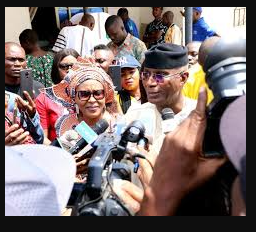At the 2025 Business Leadership Roundtable organised by Nubian American Advanced College (NAAC), key players from government, academia, industry, and international partners have called for urgent and sweeping reforms in Nigeria’s tertiary education sector to align academic training with the realities of the labour market and boost graduate employability.
Held under the theme “Realigning Tertiary Education for Nigeria’s Growth and Sustainable Development: A Conceptual Framework,” the high-level dialogue brought to the fore the widening gap between what is taught in Nigerian institutions and what employers need in today’s fast-changing economic landscape.
Chairman of the occasion, Kiri Wakama, opened discussions with a strong appeal for synergy between education and enterprise.
“We gather at the intersection of knowledge and innovation, where education meets enterprise. It is no longer enough to teach theory in classrooms. We must foster practical experience, encourage innovation, and build strong bridges between academia and industry,” he said.
Dr. Azhinoto Ikpah, Chief Promoter of NAAC and Chairman of the Nubian Group, stressed that universities must serve as bridges between business and community. He called on institutions to produce graduates who meet industry expectations, not just academic benchmarks.
“It makes sense that the products of our institutions must meet the standards of the industries they’re expected to serve,” Ikpah said, highlighting NAAC’s ongoing curriculum collaboration with Johnson C. Smith University in the United States as a model for international academic partnerships.
Speaking on the misalignment between Nigeria’s academic output and workforce needs, Director-General of the Nigeria Employers’ Consultative Association (NECA), Mr. Adewale-Smatt Oyerinde, delivered a critical position paper that linked the country’s high unemployment rate to an outdated education system and poor public investment.
“While UNESCO recommends that 15–20% of national budgets be allocated to education, Nigeria’s 2024 budget stood at just 5.5%. This underfunding, combined with outdated curricula, is why our graduates are largely unemployable,” he said.
He urged policymakers to adopt transnational education models and push local curriculum reforms that reflect global skills demands. He also reaffirmed NECA’s commitment to solutions through programs like the Employability Scheme and the NECA–ITF Technical Skills Development Project.
Another standout voice at the event was Archbishop Doye Agama, who presented a compelling paper on the need to integrate affordable digital skills across all academic disciplines—not as standalone computer courses, but as embedded tools for real-world problem-solving.
“Business students should work with real CRM systems and data analytics; engineering students with IoT platforms and digital twins. Liberal arts students must master digital content creation. All students must develop AI collaboration and remote work skills,” he stated.
From the government side, Permanent Secretary of the Lagos State Ministry of Tertiary Education, Mr. Adeniran Kasali, expressed support for international collaborations and investments in digital teaching tools, emphasizing the state’s commitment to training globally competitive graduates.
“We’re working hard to reposition our tertiary institutions to produce graduates who can not only fill roles locally but also compete globally,” he said, encouraging institutions to embrace the roundtable’s resolutions.
With the range and depth of contributions, stakeholders left the event with renewed optimism. From enhancing funding and digital integration to curriculum redesign and international partnerships, the roundtable signalled a new momentum for transformative change in Nigeria’s higher education landscape.
Ask ChatGPT

